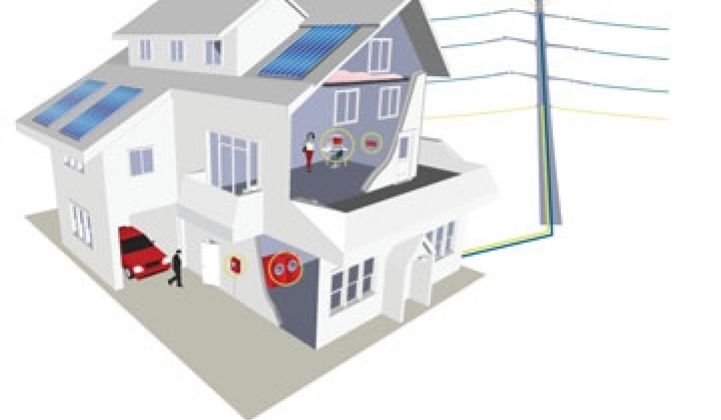The focus of Colorado's SmartGridCity project is shifting from infrastructure to applications.
Colorado regulators have reiterated that Xcel Energy may charge customers to recover $11 million on the project, which enables grid customers in Boulder to monitor and control their power usage to an unprecedented degree. But they rejected the utility's plea to avoid a new proceeding that could result in a requirement that Xcel refund at least some of that money.
Whether or not ratepayers get a discount on the costly project, both the utility and Boulder officials say that the capital-intensive installation of its communications and measurement hardware is complete. It cost over $100 million and Xcel tried to get start-ups to kick in $5 million each to participate.
What's left are the applications -- and how to select and pay for them.
SmartGridCity "is already operating fully," says Tom Henley, spokesman for Xcel's Public Service Co. of Colorado subsidiary. "We continue to expand the project in other areas."
Chief among those is the company's effort to recruit customers to test in-home applications. Those include energy management software and hardware.
The utility also wants to run a pilot program to test time-of-use pricing. The TOU pilot seeks to discover the best combination of clock times, kilowatt rates and rebates to motivate customers to shift discretionary power demand, such as for clothes drying or EV recharging, to non-peak hours.
Boulder's Jonathan Koehn, the city's sustainability coordinator, allows that while SmartGridCity's infrastructural heavy-lifting is complete, the customer-centric tools that would justify that expense are not yet in place.
"We want to work with Xcel to develop the customer-side applications," Koehn says.
Also unaddressed are concepts to integrate distributed generation, such as solar PV and other renewables -- and distributed storage, particularly in the form of plugged-in electric vehicles -- into the program.
In rejecting calls to block Xcel from recovering its SmartGridCity investment, the Colorado Public Utilities Commission this month reiterated its December decision allowing cost recovery, subject to subsequent refund. In doing so, the commission said it is seeking to balance "several competing legal and policy objectives," including the "encouragement of new smart grid technologies and energy efficiency."
But the regulators said they also will move forward with a separate proceeding to certify SmartGridCity as a new power-distribution investment. That promises a microscopic review of its assumptions, costs, benefits and technologies.
Next up: How to pay for the apps.
At this point, none of the vested parties has gone public with a proposal for sharing the costs of the applications.
There is plenty of precedent for utility-scale subsidization of such "behind the meter" costs as programmable thermostats, compact fluorescent bulbs and high-efficiency furnaces. But with sunk costs for SmartGridCity already in the thousands of dollars per meter, regulators and ratepayers this year must decide how much more the system can bear before the project crosses from a forward-looking investment to one of never-present value.
Stephen Munro is a D.C.-based analyst and journalist specializing in state and federal utility regulation. Contact him at (202) 744-8553 or [email protected].



